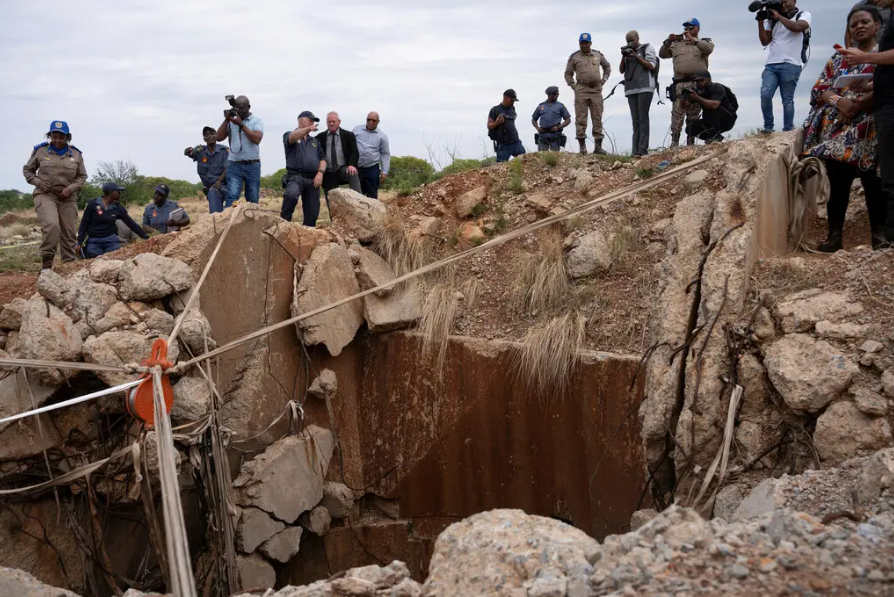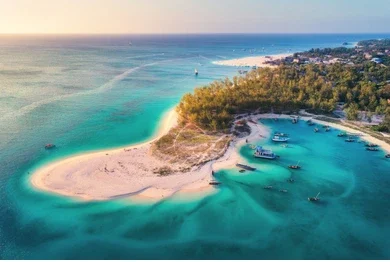At a Glance
- Illegal mining disrupts South Africa’s gold sector, siphoning revenue, destabilizing markets, and driving security concerns that deter investors.
- Toxic mining practices create environmental risks, harming ecosystems and discouraging sustainable investments in mining operations.
- Strengthening security and community ties can mitigate risks and promote growth in South Africa’s mining industry by 2025.
South Africa’s mining industry, long celebrated as a cornerstone of the nation’s economy, faces a mounting crisis that investors cannot afford to overlook.
Illegal mining operations, spearheaded by criminal gangs known as “Zama Zamas,” are undermining the gold mining sector, costing the economy over $1 billion annually.
Understanding the associated risks and potential mitigation strategies becomes imperative as this underground activity grows for stakeholders aiming to invest in South Africa’s mining landscape.

The Reality of illegal mining and its impact
Economic disruptions: Illegal mining not only siphons significant revenue but also disrupts legitimate mining operations.
Formal mining companies must allocate resources to combat illicit activities, reducing productivity and profit margins.
Additionally, the influx of illegally mined gold into the market destabilizes pricing mechanisms, affecting the sector’s financial health.
Environmental and safety hazards: The unregulated nature of illegal mining exacerbates environmental degradation.
Toxic chemicals used in gold extraction contaminate water sources and soil, leading to long-term ecological damage.
Abandoned shafts left by illegal miners pose severe safety risks, often resulting in accidents and fatalities. Such conditions discourage investment and erode confidence in the industry’s sustainability.
Security challenges: The rise of organized crime in illegal mining zones creates significant security issues.
Violent clashes between gangs, law enforcement, and local communities have escalated, deterring both domestic and foreign investment.
What investors need to know
Investors considering South Africa’s mining industry must approach with a clear understanding of these challenges:
- Due diligence: Thoroughly investigate the operational history and security measures of prospective mining projects. Companies actively addressing illegal mining threats are more likely to sustain profitability.
- Regulatory environment: Familiarize yourself with South Africa’s legal framework for mining and ensure compliance. Understanding regulatory nuances can help mitigate risks tied to unregulated activities.
- Community engagement: Assess the company’s relationship with local communities. Businesses fostering partnerships with surrounding populations are better equipped to deter illegal mining and gain community support.
Strategies for mitigation in 2025
To safeguard investments and help revitalize South Africa’s mining sector, proactive steps are essential:
- Enhancing security: Mining companies should collaborate with government authorities to fortify security in vulnerable areas. Employing advanced surveillance technologies, such as drones and sensors, can help monitor and deter illegal operations.
- Corporate social responsibility (CSR): Investments in local communities can significantly reduce complicity in illegal mining. Companies can foster goodwill and diminish reliance on illicit activities by creating jobs, providing educational opportunities, and improving living standards.
- Infrastructure development: Strengthening infrastructure within mining regions can improve operational efficiency and reduce vulnerabilities. Well-maintained roads, energy supplies, and secure storage facilities deter illegal mining and enhance overall productivity.
- Policy advocacy: Investors and mining companies should engage with policymakers to advocate for stronger penalties against illegal mining and the establishment of specialized task forces to combat organized crime.
A Path to sustainable growth
South Africa’s mining industry holds immense potential for growth, but addressing the challenges posed by illegal mining is critical for realizing this promise. Investors must prioritize sustainability, security, and community engagement as part of their investment strategies. By partnering with responsible operators and supporting government-led initiatives, stakeholders can help restore confidence in South Africa’s gold mining sector.
As 2025 approaches, proactive measures and informed decision-making will be pivotal in navigating the complexities of South Africa’s mining landscape. While risks remain, a collaborative approach between investors, mining companies, and government entities can lay the groundwork for a resilient and prosperous future in one of the world’s most historically significant gold-producing nations.















